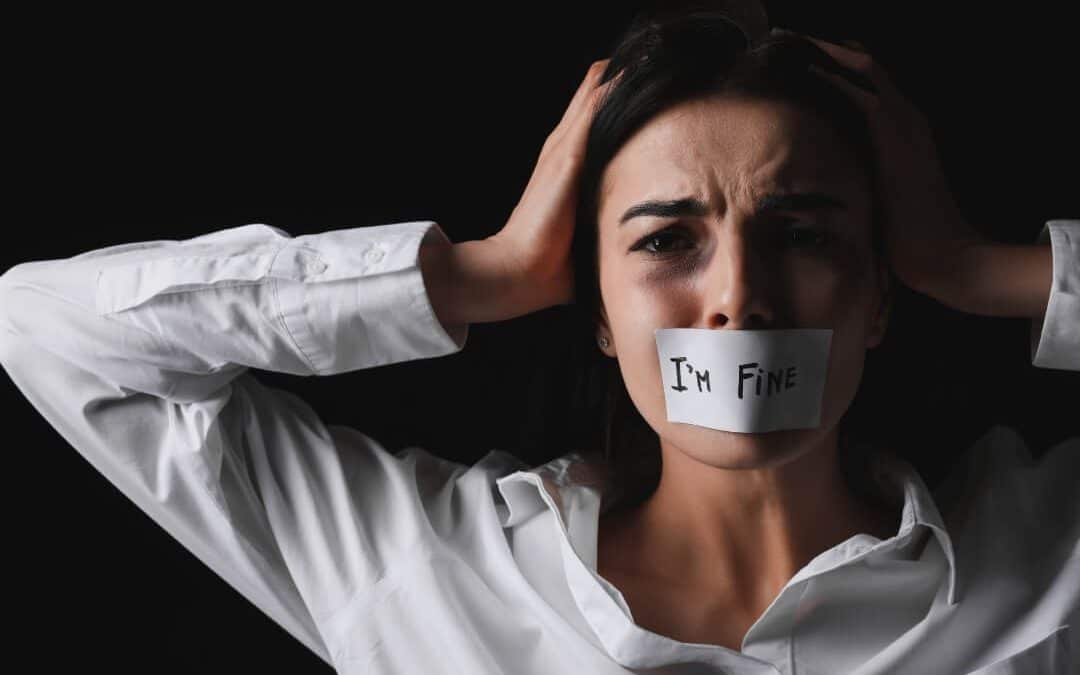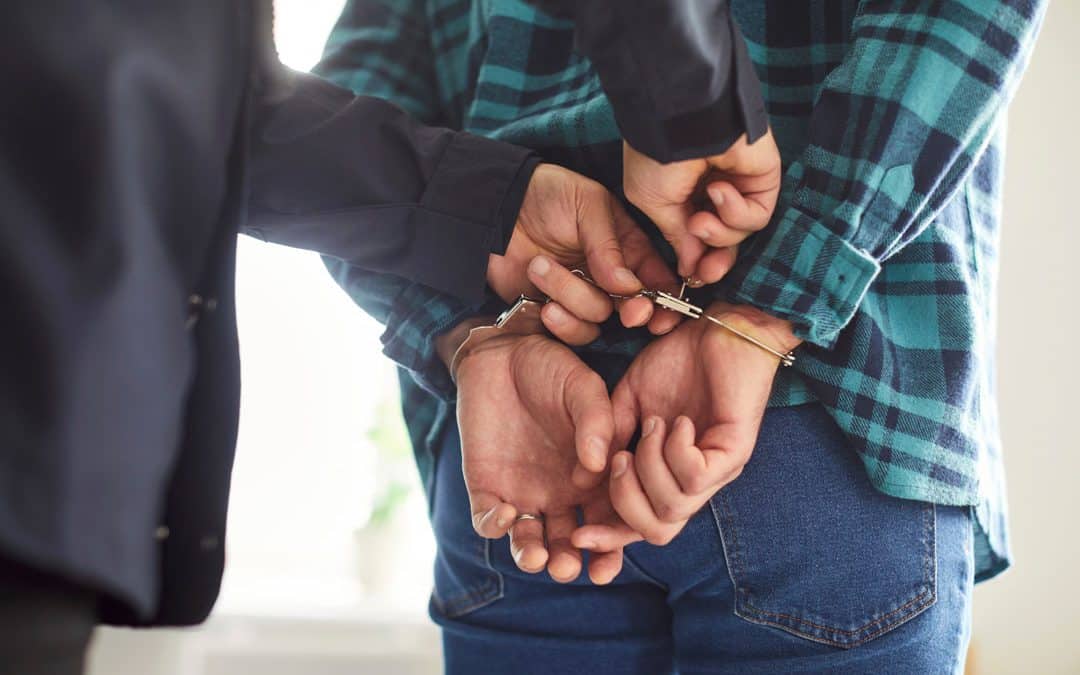Understanding Controlling and Abusive Relationships
Navigating the complexities of controlling and abusive relationships can be both daunting and confusing. Recognising the signs of these harmful dynamics is a critical first step in seeking help and making informed decisions about one’s future. Understanding the nature of control and abuse lays the groundwork for reclaiming autonomy and ensuring safety.
Defining Controlling Behaviour in Relationships
Controlling behaviour in relationships often hides behind a veneer of love and concern, making it difficult to identify. This behaviour reflects a pattern where one partner consistently seeks to dominate or manipulate the other, often undermining their freedom and autonomy. Recognising these patterns is essential in understanding whether your relationship is healthy or harmful.
Signs of a Controlling Partner
A controlling partner might display behaviours that are initially disguised as care or protection. These include constantly monitoring your activities, dictating whom you can see or where you can go, and questioning your every move. Such a partner may dictate your clothing choices, criticise your decisions, and isolate you from friends and family. They might also use jealousy as a tool to justify their possessiveness, asserting that their actions stem from deep affection.
A controlling partner might display behaviours that are initially disguised as care or protection. These include constantly monitoring your activities, dictating whom you can see or where you can go, and questioning your every move. Such a partner may dictate your clothing choices, criticise your decisions, and isolate you from friends and family. They might also use jealousy as a tool to justify their possessiveness, asserting that their actions stem from deep affection.
Emotional vs. Physical Control
Control can manifest in both emotional and physical forms. Emotional control involves manipulation, guilt-tripping, and degrading remarks intended to lower self-esteem and restrict autonomy. A partner may use threats or emotional blackmail to keep you compliant. Physical control, conversely, includes direct actions such as physical restraint or overt threats of harm.
Understanding the difference between emotional and physical control is crucial, as both can have profound impacts on mental and physical health. Emotional abuse often serves as a precursor to physical abuse, escalating as the controlling partner’s power grows. Knowing these distinctions empowers you to acknowledge the seriousness of your situation and seek appropriate help, including guidance from a domestic violence lawyer Toowoomba based.
Identifying Abusive Relationships
Abusive relationships encompass a spectrum of harmful behaviours that extend beyond mere control. Identifying the abusive dynamics within a relationship involves recognising patterns that repeatedly undermine one’s safety and wellbeing. It is essential to define what constitutes abuse to access the right support and take protective measures.
Types of Abuse: Physical, Emotional, and Financial
Abuse can manifest in various forms, including physical, emotional, and financial. Physical abuse involves any act of violence that causes bodily harm or physical intimidation. Emotional abuse includes verbal assaults, constant criticism, and actions that erode self-confidence, such as gaslighting. Financial abuse restricts access to financial resources, giving one partner excessive control over money, limiting the other’s independence.
Take the example of Mark, who noticed that his partner controlled their joint bank account and limited his access to funds, effectively enforcing a state of dependency. Whether it’s being subjected to physical harm or having finances manipulated, recognising these abuses is vital in seeking legal interventions to protect oneself.
The Cycle of Abuse
The cycle of abuse is a recurring pattern that many victims find themselves trapped within, making it challenging to break free. It typically involves three stages: tension-building, where stress and strain grow; an incident of abuse, where the controlling behaviour peaks; and a reconciliation phase, where the abuser may apologise or make promises of change.
Understanding this cycle highlights why individuals may remain in abusive relationships. Each phase reinforces the dynamics of power and control, often leaving the victim feeling trapped by a combination of fear, hope, and guilt. Recognising this cycle allows individuals to pinpoint when they are at risk and understand that the temporary apologies and reconciliations do not resolve the underlying issues.
Through these insights into controlling and abusive relationships, individuals can begin to see the patterns and dynamics that might otherwise feel obscured. This understanding is a stepping stone towards breaking free and accessing the support necessary for recovery and safety.
The Role of the Law in Protecting Victims
The Legal Definition of Domestic Abuse in Australia
Domestic abuse in Australia is recognised as behaviour that is threatening, controlling, or intended to cause fear. This encompasses various forms of abuse, including physical, emotional, psychological, financial, and sexual abuse. The Family Law Act 1975 and state legislation in Queensland define domestic abuse beyond physical harm, acknowledging that control or coercion can severely impact a person’s wellbeing. An understanding of these legal definitions ensures victims can recognise abuse even when it doesn’t fit traditional perceptions of violence.
For instance, financial abuse could include controlling the family’s income without consent, restricting access to financial resources, or sabotaging employment opportunities. Psychological abuse might involve threatening behaviour, constant surveillance, or isolation from friends and family. Recognising these patterns is crucial for legal protection under Australian law. By broadening the context of what constitutes abuse, the legal framework aims to provide comprehensive security and support to individuals who might otherwise feel trapped in a relationship due to non-physical forms of abuse.
Legal Rights for Victims of Abuse
Victims of domestic abuse in Australia possess a range of legal rights designed to protect their safety and uphold their dignity. Knowing these rights is vital for anyone seeking to escape an abusive relationship. Victims have the right to pursue a domestic violence order (DVO), ensuring immediate protective measures against the perpetrator. These orders can include provisions like preventing the abuser from contacting them or coming near their place of residence or work.
Under Australian law, victims also have the right to access police protection and legal assistance. This includes police escorting them to safely collect belongings or ensuring their ex-partner does not breach protective orders. In addition, victims are entitled to seek legal counsel. Understanding these rights provides empowerment, offering a path towards safety and independence.
Protective Orders and How They Work
Protective orders safeguard victims of domestic abuse. They serve to legally restrain the abuser, offering a layer of safety for the victim and any children involved. In Queensland, the primary protective orders are domestic violence orders (DVOs), which can be temporary or final, depending on the circumstances and severity of the abuse. These orders aim to prevent further harm by imposing specific restrictions on the abuser. For instance, a DVO may prohibit the abuser from contacting the victim, visiting certain locations, or engaging in any further abusive behaviour.
Applying for a Domestic Violence Order
Applying for a DVO is a critical step in securing protection from an abuser. The process begins by lodging an application at a local Magistrates Court, which can be submitted by the victim, a police officer, or an authorised person on the victim’s behalf. The application must detail the instances of abuse and the requests for protection. Once filed, the court may issue a temporary order to provide immediate protection until a hearing for a final order can be arranged.
It is important to collate evidence supporting the claims of abuse, such as photographs, medical records, or text messages, to strengthen the application’s credibility. The court will evaluate the application and determine whether a DVO is necessary based on the evidence provided. This comprehensive approach aims to ensure that victims have the necessary legal shield while enabling them to transition towards a safer environment.
Enforcement of Protective Orders
Once a domestic violence order is granted, its effective enforcement is crucial to its success. The Queensland Police Service ensures that DVOs are upheld. If an abuser breaches the order, it is considered a criminal offence, and the police are empowered to intervene promptly. This may include arresting the perpetrator or taking other legal action to address the breach.
Victims are encouraged to report any breaches immediately, providing as much detail and evidence as possible to the authorities. Enforcement of the order is intended to act as a deterrent against future violations, fostering a sense of security for the victim. Additionally, community support networks and legal advisors can help victims understand their rights and the steps to take if an order is violated. The goal is to maintain safety and peace of mind as victims navigate the road to recovery and independence.
How to Safely Leave a Controlling or Abusive Relationship
Leaving a controlling or abusive relationship is a complex and emotionally challenging process that requires careful planning and support. The safety and wellbeing of you and your children are paramount. It’s essential to consider both emotional readiness and logistical planning to ensure a safe transition to independence.
Creating a Safe Exit Plan
Steps to Prepare for Leaving
Preparation is key when planning to leave a controlling or abusive partner in Toowoomba. Begin by discreetly gathering important documents, such as birth certificates, insurance policies, and banking information, and store them in a secure location. Consider opening a separate bank account and securing a new mobile phone to prevent monitoring. Creating a list of essential items for yourself and any children, such as clothing and medications, will streamline the process when it’s time to depart. Start saving funds where possible, and have a clear understanding of where you will go and how you will get there. Speak with a trusted legal advisor to understand your rights and options moving forward, allowing you to leave with clarity and confidence.
Involving Trusted Friends or Family
Relying on trusted friends or family members can provide significant support and safety. Share your plans with someone who can offer a safe place to stay or help you find alternative accommodation. Arrange signal words or phrases to indicate when you are in urgent need of help. It’s important to choose individuals who respect your privacy and understand the seriousness of your situation. They can also help by maintaining your cover stories or assisting with child care, easing the logistics of your departure. Building this network provides both practical and emotional support, reinforcing your resolve to leave.
The Importance of a Support System
A robust support system is important in successfully leaving and recovering from an abusive relationship. This network can comprise both personal connections and professional resources that aid in emotional recovery and logistical tasks.
Professional Support Services Available
In Toowoomba, numerous professional services are available to assist individuals escaping abusive relationships. Local organisations provide immediate shelter, counselling, and legal advice services, such as domestic violence hotlines. These services can guide you through the legal processes of obtaining protective orders and can provide ongoing emotional support through therapists and counselling sessions. Additionally, case workers can assist in navigating financial aid and housing arrangements, ensuring a smoother transition to independence. Engaging these resources equips you with the essential tools needed for both immediate escape and long-term recovery.
Connecting with Support Groups
Support groups provide a vital community where individuals share their experiences and encourage one another towards recovery. Groups can be found locally in Toowoomba or online, providing flexibility in accessing support. These groups foster a sense of belonging and understanding, offering insights and strategies from individuals who have navigated similar situations. They also offer practical advice on coping with emotional fallout and rebuilding confidence after leaving an abusive partner. Regular interactions within these groups foster resilience and empower individuals to reclaim their lives. Consider reaching out to local community centres or online forums to find a group that resonates with your needs.
Legal Resources and Support for Victims
Navigating the legal landscape can be daunting, especially when facing the complexities of leaving a controlling or abusive relationship. In Toowoomba and across Queensland, there are resources and support systems in place to empower victims and ensure their safety and legal rights are upheld. By leveraging these resources, victims can access the guidance necessary to make informed decisions about their futures.
Accessing Free Legal Advice
Victims of domestic abuse can benefit significantly from accessing free legal advice. This advice ensures they understand their rights, the legal process, and the options available to them in their specific circumstances. Knowledge of the legal framework can provide victims with a sense of control and direction during a challenging time.
Community Legal Centres
Community Legal Centres (CLCs) in Toowoomba offer free and confidential legal assistance. These centres provide a welcoming and supportive environment for individuals seeking advice on matters such as obtaining protective orders, divorce, parental responsibility issues, and financial settlements. Staffed by experienced lawyers and volunteers, CLCs can assist with the preparation of legal documents, offer court representation, and help victims navigate the family law system. They are an essential local resource, ensuring access to justice for those who may otherwise feel isolated or overwhelmed.
Online Legal Resources
The internet is a valuable tool for accessing legal information and support at any time. Websites such as our website and the Family Court of Australia’s portal provide comprehensive guides on legal rights, application procedures for protective orders, and step-by-step advice for those affected by domestic and family violence. These resources are designed to be user-friendly, allowing individuals to gain a better understanding of their legal standings and options without leaving their homes. Furthermore, online resources offer downloadable forms and templates that can simplify the application process.
Victim Support Programs
Support extends beyond legal advice, with various victim support programs available to provide practical and emotional assistance during and after leaving an abusive relationship. Each program is unique, targeting different aspects of victims’ needs, from immediate safety concerns to long-term emotional and financial recovery.
Government Support Services
The Queensland Government offers numerous support services tailored to meet the immediate and long-term needs of domestic violence victims. Services include financial aid, housing assistance, and specialised counselling programs. Safe Haven Accommodation ensures victims have a secure place to stay, offering peace of mind during difficult transitional periods. Additionally, the government provides dedicated hotlines and resource centres, such as Victim Assist Queensland, which helps individuals navigate available support and connect with relevant services quickly and confidentially.
Non-Profit Organisations and Helplines
Non-profit organisations play a pivotal role in victim support, offering helplines and outreach services that operate 24/7. These organisations, like DVConnect and Women’s Legal Service Queensland, provide immediate assistance and ongoing support to those in crisis. They offer crisis counselling, safety planning advice, and, where necessary, referrals to shelters or legal services. Helplines are staffed by trained professionals who understand the nuances of abuse and are equipped to guide callers through their next steps, ensuring that every victim has access to the empathy and expertise they need to move forward.
With these resources, victims in Toowoomba are not alone. There are supportive and accessible avenues to achieve the protection and relief they deserve, paving the way towards a safer and more secure future.
Understanding Your Rights Post-Separation
Navigating the aftermath of leaving a controlling or abusive relationship is a significant step towards freedom and restoring your life. It’s essential to be informed about your legal rights, particularly regarding parental responsibility, assets, and personal safety. Knowing these rights empowers you to make informed decisions that can impact your and your children’s wellbeing.
Parental Responsibility and Visitation Rights
After separation, determining parental responsibility and visitation arrangements prioritises the best interests of the children involved. In Queensland, joint parental responsibility is commonly assumed unless there are circumstances that suggest otherwise, such as issues of safety. If domestic abuse was present, this could significantly influence court decisions regarding parenting orders.
Engaging with a family law professional can help you understand how to document the effects of the abusive relationship on your children and present this to the court. The focus remains on ensuring a child’s safety and allowing them to maintain a loving relationship with both parents when safe to do so. Through mediation or court orders, a structured parenting plan can be established that provides clarity and security for the children.
Division of Assets
The division of assets is another crucial aspect post-separation. The Family Law Act 1975 provides the framework for distributing property and financial resources in a fair and equitable manner. Factors such as each party’s financial and non-financial contributions to the relationship, as well as future needs, guide the settlement process.
In cases where financial abuse has occurred, it’s essential to fully disclose all assets and debts to ensure a fair distribution. Consulting with a family law solicitor can help identify and accurately value assets, including those potentially hidden by a controlling partner. A clear understanding of your legal entitlements helps secure what is rightfully yours and fosters financial independence.
Maintaining Personal Safety
Safety Planning for After You Leave
Ensuring your safety post-separation requires careful planning. A comprehensive safety plan involves actions you can take to remain safe, particularly when the abuser may attempt to regain control. This includes changing locks, informing your workplace of the situation, and considering accommodations or relocation if necessary. Keeping your new residence confidential adds an extra layer of protection.
Safety is about more than physical wellbeing; it also extends to emotional security. Be vigilant against any form of manipulation or intimidation tactics. Developing a supportive network and legally informing authorities of any breaches of protective orders is vital in maintaining peace of mind.
Changing Personal Information and Digital Security
After separation, updating your personal information is the next step in protecting your privacy. This may involve updating addresses on official documents, renewing any joint accounts, and establishing new bank accounts in your sole name. Ensuring your privacy extends into the digital realm, requiring you to change passwords, use two-factor authentication, and review your privacy settings on social media accounts.
Digital security is a growing concern, especially with the potential for harassment through electronic means. Staying aware of your digital footprint and employing security software can help protect your information. If you encounter difficulties, consulting a professional for cybersecurity advice can offer additional peace of mind. The priority lies in securing your identity and fostering a sense of protection in your new chapter.
Ultimately, understanding and exercising your rights after separation fuels your journey towards autonomy and safety. By actively engaging with legal advice and support networks, you pave the way for a stable future.
The Psychological Aftermath of Leaving an Abuser
Leaving a controlling or abusive relationship is a courageous and transformative step, yet it often ushers in complex emotional and psychological challenges. Understanding and addressing the psychological aftermath is crucial for the healing journey. Many individuals in Toowoomba who have left abusive situations experience a mix of relief and the daunting task of rebuilding their sense of self and security. Acknowledging these emotional realities fosters resilience and facilitates recovery.
Healing and Recovery
The process of healing after escaping an abusive relationship can be multifaceted and unique to each individual. It generally involves letting go of fear and rebuilding self-esteem and autonomy, often after years of manipulation and control. Victims may struggle with feelings of guilt, shame, anger, or confusion, initially making the road to recovery seem overwhelming. However, recognising these emotions as normal responses to trauma is an essential step towards healing.
Local support groups in Toowoomba provide a safe space for individuals to share their experiences and find solidarity with others who have endured similar situations. Connecting with others who understand what you have been through can significantly aid in processing the past and moving forward. Engaging in therapeutic activities, such as hobbies, exercise, or art, can also support emotional regulation and overall wellbeing. Remember, healing is a gradual path, and self-compassion is crucial during this journey. Surrounding yourself with empathetic and supportive individuals can encourage a sense of normalcy and optimism about the future.
Engaging with ongoing support can provide the necessary tools to foster resilience and empowerment, ultimately leading to a healthier mental and emotional state. It’s important to honour your own timeline and recognise that slow and steady progress is still progress. By focusing on your strengths and achievements, however small, recovery becomes a testament to personal courage and resilience.
Access to Counselling and Therapy
Professional counselling and therapy are invaluable resources for anyone coming out of an abusive relationship. These services provide a structured environment where individuals can work through their trauma with the guidance of qualified professionals. In Toowoomba, various therapeutic options are available, including private practice counsellors and psychologists, as well as community mental health services.
Cognitive-behavioural therapy (CBT) can be particularly effective, as it helps change unhealthy thought patterns and develop coping mechanisms. Trauma-informed therapy options consider your specific experiences and needs, creating a tailored approach to recovery. Therapists offer strategies to rebuild self-worth and establish healthy boundaries, reshaping personal narratives post-abuse.
Local mental health services often offer sliding-scale fees or bulk billing options for individuals with financial constraints, ensuring greater accessibility. Furthermore, many online platforms now offer virtual therapy sessions, providing flexibility and convenience.
Seeking therapy is a proactive step towards recovery. It can help reduce symptoms of anxiety, depression, and PTSD, which are common among those who have experienced domestic abuse. Therapy also plays a part in reclaiming your life’s narrative, returning the sense of control you may have felt lost. Remember, reaching out for help is a sign of strength, not weakness, and it’s a pivotal part of the healing process. In moments of doubt, remember that professional support is just a phone call or a click away, ready to assist you on this transformative journey.
FAQs
What does a domestic violence lawyer in Toowoomba do?
A domestic violence lawyer in Toowoomba provides legal advice and representation for individuals experiencing abuse. They help clients apply for Domestic Violence Orders (DVOs), navigate the family law system, and ensure their rights and safety are protected throughout the legal process.
How can I get legal protection from a controlling partner in Queensland?
You can seek legal protection by applying for a Domestic Violence Order (DVO) through the Magistrates Court in Queensland. A domestic violence lawyer in Toowoomba can assist with gathering evidence, completing the application, and representing you in court to ensure your safety and legal rights are upheld.
Can I get free legal advice for domestic violence issues in Toowoomba?
Yes, free legal advice is available in Toowoomba through Community Legal Centres and Legal Aid Queensland. These services can connect you with a domestic violence lawyer who can help with DVO applications, family law matters, and support services tailored to your situation.
Looking Forward: Building a New Life Beyond Abuse
Looking Forward: Building a New Life Beyond Abuse
Emerging from a controlling or abusive relationship can feel like stepping into a new world. This journey is a powerful opportunity to rediscover oneself and embrace empowerment. Many individuals find healing by exploring new interests and reclaiming aspects of life that may have been neglected during the relationship. This process could involve pursuing education, engaging in hobbies, or connecting with a supportive community.
Journaling is a valuable tool in this phase, offering a safe space to explore emotions and set goals. Such reflective practices foster self-awareness and enable individuals to better understand their personal growth. Similarly, setting achievable personal milestones can build confidence and provide a sense of progress.
Laura, a former client from Toowoomba, found empowerment through volunteer work and attending local workshops. By giving back to the community and learning new skills, she not only rebuilt her self-esteem but also developed a supportive network with shared experiences. Empowerment is about recognising one’s strengths and capabilities, challenging past negative beliefs, and celebrating each step taken towards a full recovery. Remember that this journey is personal and unique to every individual.
Long-Term Strategies for Independence and Wellbeing
Establishing a stable and independent future requires deliberate planning and a resilient approach. Financial independence is a cornerstone of this phase and can be achieved through budgeting, financial planning, and seeking advice from financial counsellors. This foresight can establish a foundation for long-term security and alleviate fears of dependency.
Education and career development are also critical components. Whether it’s returning to school, acquiring new certifications, or advancing in a current job, these efforts contribute significantly to personal and professional growth. These advancements support not only financial independence but also foster a sense of achievement and purpose.
Mental health and emotional wellbeing are as vital as financial stability. Prioritising self-care routines, accessing counselling resources, and surrounding oneself with positive influences are essential for sustained recovery. Long-term wellbeing involves maintaining healthy relationships, practising stress management techniques, and ensuring a balance between personal and professional life.
Community support systems and resources in Toowoomba, including local health services and support groups, play an invaluable role in this long-term journey. Engaging with these resources can provide continuous support and an opportunity for connection with others who have had similar experiences.
Building a new life after abuse is a complex and rewarding process. By focusing on empowerment and independence, individuals can create a fulfilling and secure future, learning not just to survive but to thrive in their new life chapters.











